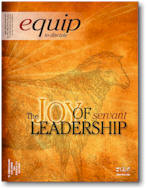Sunday school has been and continues to be a key element in the church’s role of making disciples. The concept of discipling covenant children has been a part of the church’s role of teaching and training at least since the establishment of the Synagogue at the time of the Babylonian captivity. The fact that so many churches are struggling with the idea of Sunday school is a direct reflection of our times. Brett P. Webb-Mitchell in his book Christly Gestures writes, “I propose in this book that the purpose of Christian education in the church is as follows: Christians live out of the true vision given to them by the grace of God in the writings of the Apostle Paul; the church-amid all the dynamics, controversies, and agendas within congregations and parishes-is the figurative body of Christ on earth and is thus the context of educating all Christians; therefore, the church is education-from the intentional or formal programmatic activities of Sunday schools, youth groups, and catechetical instruction to Kerygma and Disciple Bible studies,” (page 2). He goes on to say that everything a church does and is centers around education and discipleship.
It weakens the church’s role to speak of Sunday school in pejorative ways. It may be the churches best opportunity to “make kingdom disciples” if it teaches what is in accord with sound doctrine and teaches doctrine as life and life as doctrine. However, for Sunday school to be an integral part of the church’s role in making kingdom disciples, it must be thought of with that task in mind. It must have those trained and equipped for the role of teaching and training, and then it must have the right resources to assist. That is where curriculum comes into play.
Click here to read entire publication in PDF (Acrobat Reader required)
A church needs to use a curriculum that is biblically, theologically, and pedagogically sound. Many churches in North America do not always use a curriculum that follows that pattern. Hence children and youth, and maybe even adults, learn eclectically. A good curriculum has a clear scope and sequence in its design. For example, while its scope is to teach the Bible and cover all the biblical truths, it must also have a sequence that will carry you through the Bible in an age-appropriate manner with a clear design.
CEP has a curriculum, Great Commission Publications, that does just that. Its design (scope and sequence) will enable the church to disciple its covenant children in a way that equips them to be kingdom disciples. Its foundation is Scripture, understood redemptively from a covenant perspective, within the Kingdom of God world and life view. It enables a church, beginning with the toddlers and preschoolers through senior high school, to have a curriculum that moves the students along to spiritual maturity.
To have a disciple making Sunday school, your teachers must teach the Bible from the kingdom perspective with a definite plan to encourage the spiritual growth of the students. (The kingdom refers to Christ’s rule and reign over all of life. For further explanation see Making Kingdom Disciples, A New Framework, available from the CEP bookstore.) The process of making disciples begins with God’s covenant children at their baptism, assuming they received the sacramental sign of baptism near birth. Webb-Mitchell suggests that baptism is an “unofficial beginning of our education process.” It actually may mark the official beginning of making kingdom disciples.
CEP and GCP have people and resources available to local churches to make that process more effective, but it has to be a priority with the local church to follow through. For more information or samples of these resources, contact the CEP bookstore at 1-800-283-1357.

 The question we are often asked in a variety of ways has to do with the role and function of leaders in the body of Christ, the church, and more broadly, in the kingdom. The question usually asked is, “Who are leaders and what are their performance expectations?”
The question we are often asked in a variety of ways has to do with the role and function of leaders in the body of Christ, the church, and more broadly, in the kingdom. The question usually asked is, “Who are leaders and what are their performance expectations?”